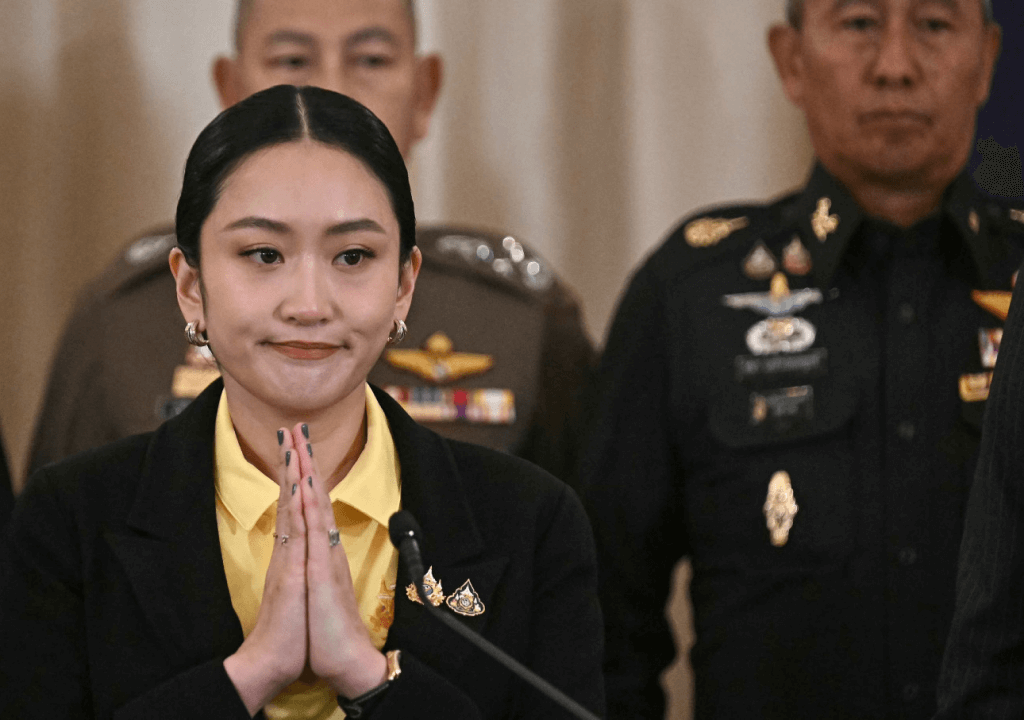When a young, inexperienced woman from Thailand’s most prominent political dynasty assumed the premiership, few expected her tenure to be smooth. Tasked with steering a politically complex nation, she was widely regarded as untested. From the outset, analysts questioned how long she could hold on—and whether her leadership would eventually awaken long-simmering frustrations beneath the surface of Thai society.
With tensions between Thailand and Cambodia once again on the rise, public anger has spilled into the streets of Bangkok. Thousands are demanding her resignation following the leak of a phone call with Cambodia’s authoritarian leader. In the recording, her tone was perceived as overly casual, her comments diplomatically inappropriate, and her criticism of Thailand’s military further fueled the growing outrage.
Mounting protests against Shinawatra
Paetongtarn Shinawatra, Thailand’s prime minister and the latest political heir of the influential Shinawatra dynasty, is facing mounting pressure over her handling of border dispute with neighboring Cambodia. And it got worse after a leaked phone call between Paetongtarn and Cambodia’s long-standing strongman, Hun Sen, was made public. In the recording, She referred to Hun Sen as “Uncle,” and pledged to fulfill any requests he might have, assuring him that she would handle them personally. She is heard criticizing a senior Thai military commander, suggesting his hardline stance was largely performative and identifying him as a political adversary.
The conversation sparked an uproar among Thai nationalists, who accused her of displaying undue deference to a foreign leader and compromising national sovereignty.
On Weekend, thousands of demonstrators flooded the streets of Bangkok city, waving Thai flags and demanding her resignation. Many held signs branding her a traitor and accusing her of betraying the nation. According to the Bangkok Post, police estimated about 6,000 people had gathered by the afternoon, with the crowd expected to exceed 10,000 by evening—marking the largest protest since the Pheu Thai party returned to power in 2023.
A considerable portion of the protesters are affiliated with political movements that previously opposed her father, Thaksin Shinawatra, who was overthrown in a military coup in 2006, and her aunt Yingluck Shinawatra, who was removed from office in 2014 following a court ruling and a subsequent coup. The family’s enduring presence in Thai politics continues to polarize the public—and now, history seems to echo once again.
Can Shinawatra hold?
The government now holds only a slim majority—just 253 out of 500 seats in the House. The ruling coalition consists of nine parties, with the Shinawatra-led Pheu Thai Party at its core. However, Pheu Thai holds only 141 seats, fewer than the progressive People’s Party, which rebranded itself after the Move Forward Party was banned during last year’s political upheaval.
The protest organizer, United Force of the Land—a nationalist activist group—has called on all coalition members to withdraw from Paetongtarn Shinawatra’s government. The conservative Bhumjaithai Party, the coalition’s second-largest faction, has already pulled out. Other key allies—including Chartthaipattana, United Thai Nation, and the Democrat Party—held emergency talks to address the escalating crisis, though none have formally withdrawn their support.
Paetongtarn is also facing judicial scrutiny after petitions were filed accusing her of ethical misconduct and constitutional violations in connection with the leaked phone call. The Constitutional Court is expected to decide whether to take up the case seeking her removal from office. If accepted, the court could suspend her during the proceedings, although a final verdict may take months.
Despite these challenges, analysts believe Paetongtarn cna hold till she gets the backing from both the military and the monarchy—especially in the wake of last year’s reformist victory at the polls. These institutions may prefer to avoid further instability, fearing that fresh elections could strengthen the hand of pro-reform forces.
Paetongtarn has tried to reassure the public that her administration remains united with the military in handling the ongoing border dispute with Cambodia. She emphasized that this is not the time for internal divisions, stressed the importance of defending Thailand’s sovereignty, and pledged full government support for the armed forces.
What comes next?
If another coalition partner were to withdraw under public pressure, Paetongtarn Shinawatra’s position could become untenable, potentially forcing an early election—an outcome many within the political establishment are eager to avoid. Other parties may attempt to preserve the parliament by forming a new coalition. A parliamentary majority of 250 seats is technically achievable without Pheu Thai, but only with the support of the reformist People’s Party—an alliance unlikely to be welcomed by the royalist establishment. Such a scenario would significantly heighten tensions and raise the specter of another military coup. Thailand has experienced it many times.
Although the Thai military recently released a statement quoting army chief Gen. Pana Claewplodtook as affirming the army’s commitment to democratic principles and the protection of national sovereignty, the prospect of a coup can no longer be entirely ruled out.








